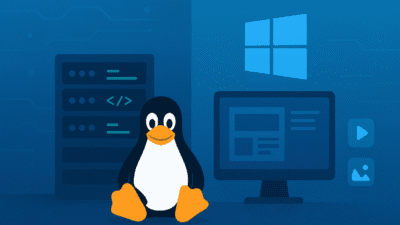Introduction
When it comes to operating systems, Linux has been a constant presence for decades. Despite the dominance of Windows and macOS in the desktop market, Linux remains the backbone of servers, cloud platforms, supercomputers, and embedded systems. Its flexibility, reliability, and open-source nature have made it a favorite among developers, sysadmins, and tech enthusiasts alike. In this article, we’ll dive into why Linux continues to be one of the most powerful and trusted operating systems in the world.
The Open-Source Advantage
One of the strongest pillars of Linux is its open-source nature. Unlike proprietary systems, Linux is free to use, modify, and distribute. This means organizations and individuals can customize it to meet their needs without worrying about licensing restrictions. The global open-source community constantly improves Linux, ensuring it stays secure, innovative, and up to date.
Stability and Reliability
Linux is well-known for its stability. Unlike other systems that may require frequent reboots after updates, Linux servers can run for years without interruption. This reliability is why over 96% of the world’s top 1 million servers run on Linux. Its lightweight kernel and efficient resource management make it ideal for enterprise environments.
Security First
Security is another area where Linux shines. Being open-source, vulnerabilities are often detected and patched quickly by the community. Additionally, Linux provides advanced security features like SELinux (Security-Enhanced Linux) and AppArmor, which add extra layers of protection. These capabilities make Linux the preferred choice for enterprises, banks, and government systems where security is critical.
Linux in the Cloud and DevOps
With the rise of cloud computing, Linux has become even more important. Platforms like AWS, Google Cloud, and Azure heavily rely on Linux for virtual machines and container orchestration. Tools like Docker and Kubernetes also run natively on Linux, making it essential for DevOps practices. Developers prefer Linux for its flexibility and compatibility with modern technologies.
Desktop Usage and Popular Distros
While Linux is not as widely adopted on desktops, distributions like Ubuntu, Fedora, and Linux Mint have made it more user-friendly. These distros provide a clean interface, powerful tools, and compatibility with everyday applications. Gamers are also beginning to explore Linux, especially with Proton and SteamOS, which enable many Windows games to run smoothly on Linux.
Conclusion
Linux may not dominate the desktop space, but its role in powering the internet, data centers, and cloud platforms makes it indispensable. Its stability, security, and open-source philosophy ensure that it will continue to thrive in the future. Whether you’re a developer, system administrator, or everyday user, Linux offers tools and flexibility that no other OS can match.





